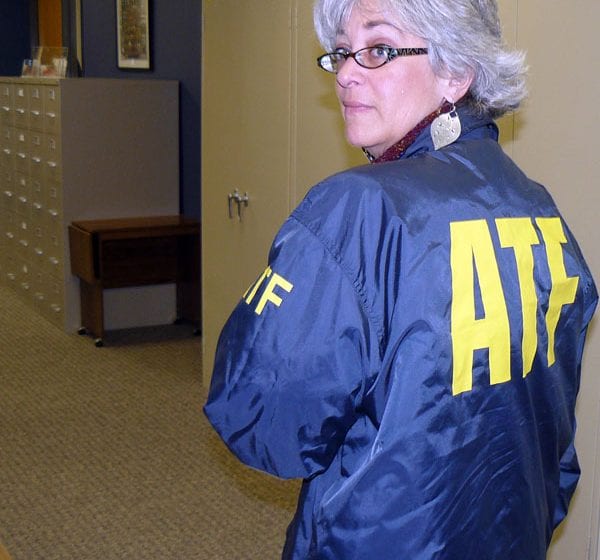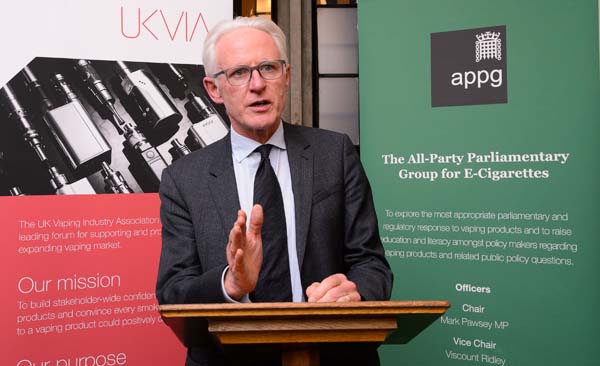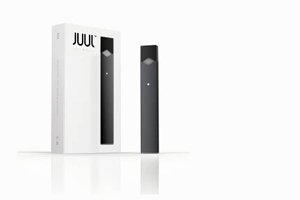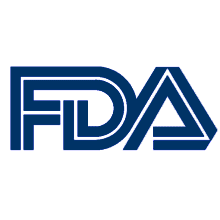The Cabinet in South Africa has approved for public comment the Control of Tobacco Products and Electronic Delivery Systems Bill, according to a story in The Eyewitness News.
The Bill is intended to replace the 1993 Tobacco Control Act and bring South African legislation in line with the World Health Organization’s Framework Convention on Tobacco Control.
The Communications Minister, Nomvula Mokonyane, was quoted as saying the cabinet would decide whether or not to approve the draft bill after considering the public’s input.
“It addresses key areas relating to indoor public areas, display of tobacco products at point of sale, use of electronic devices and the introduction of plain packaging of tobacco products,” the minister said.
Category: Regulation

Regulations proposed

Regulations challenged
Two cigarette manufacturing firms have asked Kenya’s Supreme Court to throw out the country’s Tobacco Control Regulations of 2014, arguing that they were introduced arbitrarily, according to a story in The Nation.
British American Tobacco and Mastermind Tobacco Kenya reportedly told five Supreme Court judges in Nairobi that the regulations, enacted to regulate the production and consumption of tobacco and its products, were developed to restrict their commercial interests.
BAT filed the case to challenge the Court of Appeal’s dismissal of its plea against High Court Judge Mumbi Ngugi’s decision to disallow its petition challenging the regulations.
Through its lawyers, BAT argued that the regulations were created without proper public participation and stakeholder consultations.
The company asked the Supreme Court to rule that the ‘failure to conduct proper consultations rendered the entire regulations unconstitutional’.
BAT said it was aggrieved with the provisions limiting interactions between public officials and the tobacco industry, which it termed as discriminatory and a violation of its constitutional rights.
Lawyers for the company asked the Supreme Court judges to find also unconstitutional regulations that required it and other tobacco product manufactures to contribute two percent of their revenues to a consolidated fund.
They said the levy was a form of forceful taxation imposed on their client and other cigarette and tobacco product manufacturers, and that it was derived from draconian Scottish, Roman and Dutch laws, and not English common laws.
The regulations extended non-smoking zones to outdoor areas adjacent to public places, including streets, verandas and any others defined by the Health Cabinet Secretary.
The rules, the lawyers added, violated constitutional rights to privacy, and intellectual property rights by requiring companies to reveal the contents of their products and their revenue.
But Senior State Counsel Mohamed Adow opposed the appeal, saying the firms were protecting their commercial interests without regard to public safety and the health of millions of Kenyans.
The judges have yet to indicate the date on which they will make their ruling public.
Regulations enforced
The US Bureau of Alcohol, Tobacco and Firearms (ATF) has begun to enforce more aggressively a decades-old law known as the Trafficking in Contraband Cigarettes and Smokeless Tobacco Act, according to a note posted on the California Distributors’ Association (CDA) website.
The CDA said that this move could affect all distributors, but especially those that had a cash and carry business operated from their warehouses, branches, offices, or stores.
It gave details of the information that had to be obtained from purchasers in respect of sales of more than 10,000 cigarettes (50 cartons) or more than 500 single-unit consumer-sized cans or packages of smokeless tobacco in a single transaction at a distributor’s place of business.
‘This rule does not apply to duly licensed distributors who deliver to the recipient’s place of business stamped cigarettes or smokeless tobacco on which applicable taxes have been paid,’ the CDA said.
‘This rule requiring license numbers and driver’s licenses applies when cigarettes or smokeless tobacco is bought at the distributor’s place of business.’
The CDA said that the ATF had advised that its enforcement of the Cigarette and Smokeless Tobacco Contraband Act was expected to expand throughout the entire US. To date, its activities have been primarily centered around Virginia and North Carolina on criminal-oriented activities.
The CDA added that the ATF was not advising distributors in advance when it might arrive at their businesses to review their records.
‘CDA will continue to monitor the situation and will advocate – at a minimum – that the ATF advise in advance when it may visit a distributor’s place of business,’ it said.
Promoting innovation
A UK minister has said he would consider the use of cigarette packs to promote electronic cigarettes as a smoking-cessation aid, according to a story by Julia Robinson for The Pharmaceutical Journal
The proposal was put to Steve Brine, the Parliamentary Under Secretary of State for Public Health and Primary Care, by MP Stephen Metcalfe at a House of Commons Science and Technology Committee hearing on e-cigarettes.
Brine was giving evidence along with representatives from the Department of Health and Social Care (DHSC), Public Health England (PHE), the National Institute for Health and Care Excellence and the Medicines and Healthcare products Regulatory Agency.
Tim Baxter, who, at the DHSC, is the director of healthy behaviours, reportedly told the committee that under current legislation it was illegal to put promotional material into cigarette packs, but he agreed with Brine that it was something the government should look into further.
“It’s an interesting point, let me think about it,” Brine told MPs. “In a time of tight resource it’s a very direct message.”
Brine told the committee it was important to continue building a robust evidence base around e-cigarettes so that it would become “a no-brainer” for local authorities to make the decision to promote them as a smoking cessation aid.
Robinson’s story is at: https://www.pharmaceutical-journal.com/news-and-analysis/news/steve-brine-open-minded-on-using-cigarette-packets-to-promote-vaping/20204755.article.
The cost of success
JUUL Labs has said that it will take additional decisive action to build on its existing ‘youth prevention and education programs.
The Commissioner of the US Food and Drug Administration, Dr. Scott Gottlieb, said on April 24 that the agency was introducing several enforcement actions as part of a new Youth Tobacco Prevention Plan to stop young people from using and gaining access to JUUL and other electronic cigarettes.
In a note issued through PRNewswire on April 25, JUUL said it would support state and federal initiatives to raise the minimum age for buying tobacco products to 21+.
Such support would be funded by an investment of $30 million during the next three years that would be dedicated to ‘independent research, youth and parent education, and community engagement efforts’.
‘JUUL Labs has seen significant success in its efforts to enable adult smokers to transition from cigarettes and also recognizes that young people have become aware of and gained access to its products,’ the company said.
‘The company is committed to combatting underage use of its products and engaging with the US Food and Drug Administration (FDA), members of Congress, local and state officials and members of the public health community on this important issue.
‘JUUL Labs will work with Tom Miller, the Iowa Attorney General, and a group of public officials and tobacco control individuals he will assemble to continue strengthening existing initiatives and new efforts to keep JUUL out of the hands of young people.
‘In addition, Attorney General Miller and the same group will work with JUUL Labs to develop a transparent and effective framework for independent research focused on the scientific and societal implications of vapor products.’
“Our company’s mission is to eliminate cigarettes and help the more than one billion smokers worldwide switch to a better alternative,” said JUUL Labs CEO Kevin Burns.
“We are already seeing success in our efforts to enable adult smokers to transition away from cigarettes and believe our products have the potential over the long-term to contribute meaningfully to public health in the US and around the world.
“At the same time, we are committed to deterring young people, as well as adults who do not currently smoke, from using our products. We cannot be more emphatic on this point: No young person or non-nicotine user should ever try JUUL.”
The company said its support for state and federal efforts to raise the minimum age of purchase for JUUL and other vapor products to 21+ followed its announcement in August 2017 that it had raised the minimum age of purchase on its own e-commerce site to 21+, even though the legal age of purchase in many states remained at 18.
As part of its note, JUUL said that additional programs to be launched or expanded in 2018 included:- Investing in research and development to evaluate potential technologies to help prevent youth from gaining access to, and/or using JUUL;
- Building on the company’s efforts to enforce appropriate age verification at retail through its ‘secret shopper’ program;
- Calling on social media platforms to remove content showing, and/or encouraging, youth use of JUUL;
- Calling on online marketplaces to remove content that violates JUUL resale agreements by offering JUUL products for sale without age verification;
- Providing educational material at retail locations where JUUL products are sold and on the JUUL website to help increase parents’ awareness of JUUL and provide information on the negative impacts of nicotine on youth.

Mountain retreat
The Taipei city government will impose a tobacco-smoking ban on Elephant Mountain starting May 1, according to a story in The Taiwan News.
The forthcoming ban was said to be the municipal government’s first legislation aimed at eliminating smoking from all mountain scenic areas.
Elephant Mountain attracts large numbers of visitors and international tourists daily, especially during New Year celebrations, and this is why it was chosen as the first location to impose the ban.
According to a government spokesman, the ban was created to protect the right of people not to breathe second-hand smoke.
Those who violate the ban will be fined NT$2,000-NT$10,000 (US$60-US$340).
Elephant Mountain is an ideal spot to take photos of the Taipei skyline and draws large crowds every day.
FDA’s aptitude questioned
An opinion piece published in The Hill poses and answers the question: How much does the US Food and Drug Administration do to promote public health?
Lindsey Stroud, a state government relations manager at The Heartland Institute, a non-profit group aimed at promoting limited government, describes how, in recent years, the FDA has become increasingly more involved in ‘protecting the public health by ensuring the safety, efficacy, and security’ of numerous products, including prescription medications, tobacco, and food and cosmetic products.
‘In many cases, the agency has proven itself to be exceptionally biased against harm reduction devices and services, while at other times, FDA has failed to protect the public from potentially dangerous substances,’ Stroud writes.
‘Such is the case with OxyContin, one of the most important contributors to America’s current opioid epidemic.
‘In countless instances, FDA has been too stringent and inflexible. In others, it has seemingly been ignorant of the dangers of particular drugs, leading many (this writer included) to wonder: Does FDA have any clue what it’s doing?’
Later in her piece, Stroud says that it is important to note that, while the FDA has shown it is willing to allow powerful prescription painkillers to become one of the few relief methods available for chronic pain, it has at the same time applied a narrow standard to other products that could save lives.
‘For instance, FDA has yet to allow many e-cigarette, heat-not-burn, and snus products to be marketed as less harmful alternatives to combustible cigarettes – even though ample evidence shows they are,’ she writes.
Stroud’s piece is at: http://thehill.com/opinion/healthcare/384407-how-much-does-the-fda-really-do-to-promote-public-health.
FDA comes down on JUUL
The Commissioner of the US Food and Drug Administration, Dr. Scott Gottlieb, said yesterday that the agency was introducing several enforcement actions as part of a new Youth Tobacco Prevention Plan to stop young people from using and gaining access to JUUL and other electronic cigarettes.
In a note issued through its Center for Tobacco Products, the FDA said it understood that many kids were using e-cigarettes with a particular set of characteristics: an appearance that closely resembled a USB flash drive, high levels of nicotine, and emissions that were hard to see. It said that these characteristics might facilitate youth use by making the products more attractive to children and teens.
Several of these products fell under the JUUL brand, but other brands with similar characteristics were emerging, it said.
As part of the Youth Tobacco Prevention Plan to stop youth use of tobacco products – particularly e-cigarettes – the FDA said it was announcing several new actions and efforts, including:- Issuing warning letters to 40 retailers for violations related to youth sales of JUUL e-cigarettes;
- Conducting a large-scale, undercover nationwide blitz of retail establishments;
- Sending an official request for information to JUUL Labs requiring the company to submit important documents to better understand the reportedly high rates of youth use and the particular youth appeal of these products; and
- Taking steps to foreclose online sales of JUUL to minors.
Finally, the FDA said that as part of the FDA’s responsibility to protect kids and significantly reduce tobacco-related disease and death, these were the first steps in a new effort aimed at stopping youth use of e-cigarettes.

Warnings not implemented
More than two years after the government in Nepal decided that tobacco-package health warnings should be increased in size, the requirement has not been implemented effectively, according to a story in The Himalayan Times.
In part, at least, this has to do with the fact that the requirement is being challenged in the Supreme Court.
A 2011 law requiring that health warnings covered 75 percent of tobacco packaging was amended 25 months ago to lift the coverage to 90 percent.
Dr. Tara Singh Bam, the deputy regional director at the International Union against Tuberculosis and Lung Diseases, said that, as per the law, pictorial warnings should be included on the front, back, top, and both sides of every tobacco package. There were five pictures and corresponding text warnings that should be rotated every six months, he said.
Bam added that some tobacco companies were not abiding by the requirements of the law, and he urged the government to take action against those companies.
Dr. Pushpa Chaudhary, secretary at the Ministry of Health, said the responsibility of the Ministry was to draft the bill; it did not have the right to take action against companies not abiding by the law.
But Narayan Prasad Bhandari, director at the Inland Revenue Department, said the Department had already warned the companies of stringent action if they failed to abide by the law.
However, a complicating factor is that a tobacco company is challenging the government’s new law in the Supreme Court, and whereas the hearing had been scheduled for April 18, it has been delayed.
“The Supreme Court has issued a stay order in the case, so we haven’t taken any action against the companies,” said Bhandari. “The issue of revenue collection was also one of the reasons for not taking action against them.”
Bans imposed
South Korean health authorities have announced plans to ban tobacco smoking at all cafés across the country from July, according to a story in The Korea Bizwire.
The Ministry of Health and Welfare is said to be set to pass an amendment to the National Health Promotion Act by the end of next month.
However, the ministry has said it will take into consideration public opinions submitted by May 30 before finalizing the reform bill.
Under the revised act, smoking would be banned even at cafés that now have smoking areas.
The new rule is scheduled to take effect in July in respect of cafés with floor areas bigger than 75 square meters.
Smaller establishments would be subject to the same rule from next year.
Currently, there are 30 smoking cafés across South Korea, with 13 of them located in Seoul and the surrounding area.
The amendment includes also a smoking ban in the vicinity of kindergartens and day-care centers, of which there are nearly 50,000.
The smoking rate among South Korean men aged 19 or older fell last year to below 40 percent for the first time, according to a survey released by the Korea Centers for Disease Control and Prevention last month.









